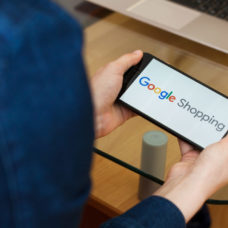Augmented Reality is certainly on the rise, but how far away are we from a true AR system?
A bigger fan of augmented reality than VR, Apple CEO Tim Cook thinks the impact of AR to be deep and overarching.
In an interview with The Independent, Cook said:
“I regard it as a big idea like the smartphone… I think AR is that big, it’s huge… I view AR like I view the silicon here in my iPhone, it’s not a product per se, it’s a core technology,”
Is AR really bound to be as big as smartphones?
There are some constraints that still need to be cleared up for AR, and immersive technologies as a whole, to gain smartphone-like ubiquity.
Much ado About AR
Massive investments from major corporations like Apple and Microsoft and the buzz created by startups like Magic Leap suggest that a bright future is ahead for augmented reality.
Touted as the next step in personal computing tech, AR has become a key battleground between Apple and Google in their ongoing technological feud.
Read More: Google AR vs. Apple AR: How do They Compare?
Apple, whose CEO is a big AR enthusiast, doesn’t want to rush things and launch AR hardware only to face a situation akin to what happened to Google Glass, which was born dead, but is now making a comeback.
Although, Apple does have plans for a Google Glass-like AR smart headsets.
Last February, the U.S. Patent and Trademark Office published a patent application filed by Apple Inc. that features a design for a lightweight and comfortable new head-mounted display.
Apple has made a series of AR startups acquisitions like Indoor.io, Metaio, and Flyby Media, but is discreet in showing how it intends to develop their technologies.
Since it first launched the ARKit to bring AR to iPhone and iPad users, Apple rolled out a new version, ARKit2, which was one of the highlight announcements of its 2018 developers conference.
Microsoft, which has learned lessons from its loss of the smartphone market to Apple and Google, wants to get ahead of the curve in immersive tech before it’s too late again.
Microsoft’s flagship product in this area is the HoloLens, which is helping the company that once ruled over the computing industry to get back on the scene.
From the software side of things, the Windows Mixed Reality portal not only supports the first device, HoloLens, it’s also open to clients wishing to develop their own AR/MR products.
Then, there’s what will most likely be the first major commercial attempt at a true AR system: Magic Leap.
Propelled by investors like Google, AT&T, Alibaba, and JP Morgan, the Florida-based start-up has already raised more than $2 billion in funds.
Experts are still waiting for the Magic Leap One: Creators Edition, due this summer, and which will be sold exclusively by AT&T in the U.S.
On July 14, Magic Leap announced it got the certification for its hardware from The U.S. Federal Communications Commission.
A couple of days before this announcement, Magic Leap revealed some specs of its headset and live-streamed a developer’s demo.
The livestream of the hardware and software at work left a lot to be desired. Some critiqued the detail level of virtual objects and their instability over the real environment.
Will Magic Leap deliver on its huge promise of an AR wearable with lifelike visual rendering?
Read More: Why Magic Leap is Set to Fail
Could Automotive AR Help Augmented Reality Become Real?
Many experts share Apple’s CEO’s opinion that the future is more set for augmented reality than virtual reality.
Unlike VR and its faux reality feel, augmented reality jazzes real settings up with virtual elements. VR is like an add-on to AR systems that encompasses it.
This makes it more likely to get to business-level maturity, be a driver of the public adoption of immersive technologies, and dominate the market.
Read More: In-App Shopping, the True Purpose of Augmented Reality Technology
VR headsets, whose market is driven mainly by hardcore video gamers, locks the user out of reality, which results in physical strains.
AR doesn’t suffer from that issue but it still needs proper headsets.
However, AR hardware currently available on the market, like Hololens and Meta 2 headsets, are still immature.
In addition to their bulkiness and complexity, these ersatz AR glasses suffer from a very limited field of vision and can only serve professional use at best.
We are still far from a true AR system.
Maybe AR salvation, i.e, true AR and public adoption, will be triggered by, not smartphones or glasses, but cars.
Yes, autonomous cars could be the hardware AR was looking for!
The car’s windshield acts as a widescreen, and the real environment settings are always changing as it moves.
Imagine all the applications, content, and services that could be created around “driverless car AR”, if we can call it that.
Right off the bat: AR geolocation, navigation, assisted-driving solutions, entertainment, and many other possibilities are easily visualized.
Waze, a Google subsidiary, is already working on upgrading its community-based GPS app to provide a new type of social networking. A platform that uses AR systems to share real-time traffic info between drivers will perhaps become the next big social media.
In any event, it is likely that AR will go in the way of the smartphone: slowly developing and improving into a commercial product that was different from early predictions but maintains its core purpose.
It’s true that we won’t be immersed into a true AR system any time soon, but AR systems like Pokemon Go show exactly how successful these systems can be, even at their most basic.



















Comments (0)
Most Recent